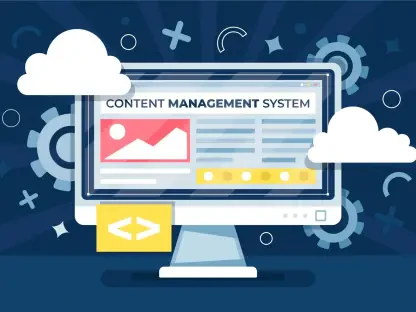E-commerce is a dynamic and competitive industry, making it vital for businesses to use every tool at their disposal to captivate customers and drive sales. One of the most effective strategies is email marketing automation, which not only saves time but also enhances personalization, improves customer relationships, and offers detailed analytics for optimization. By implementing sophisticated email marketing automation systems, e-commerce businesses can transform their marketing efforts into efficient, data-driven, and personalized customer engagements.
The Time-Saving Benefits of Email Automation
One of the most compelling reasons for e-commerce entrepreneurs to adopt email marketing automation is the significant time savings it provides. By automating repetitive tasks—such as sending welcome emails, abandoned cart reminders, and order confirmations—businesses can focus on higher-value activities. Email automation platforms are designed to handle these repetitive tasks seamlessly. For example, sending an abandoned cart email manually to each customer who leaves items in their cart would be time-consuming and impractical. Automation tools allow these emails to be sent automatically as soon as a customer abandons their cart, ensuring consistency and timeliness.
Moreover, automating these tasks reduces human error, which can lead to increased accuracy in communications. This consistency helps in building customer trust and ensures that no potential sales opportunities are missed. The time saved by automating these tasks can be redirected towards strategic planning, content creation, and other vital business functions that require human creativity and decision-making. In a fast-paced industry like e-commerce, where timing and efficiency can make or break a sale, the ability to automate emails provides a significant competitive edge.
Enhanced Efficiency and Personalization
Email automation isn’t just about saving time; it also significantly enhances the efficiency of marketing campaigns. Automated emails can be highly personalized, tailored to the recipient’s behavior and preferences, which makes them more effective. For instance, automation tools can segment customers based on their browsing and purchase history. This segmentation allows businesses to send targeted emails that are more likely to resonate with individual customers. Personalized subject lines, product recommendations, and special offers can lead to higher open and conversion rates.
Automation also helps ensure that emails are sent at the optimal time. By analyzing data, these tools can determine when a customer is most likely to engage with an email, increasing the chances of interaction and subsequent purchases. This level of personalization goes beyond simply addressing the customer by name; it involves understanding customer behavior patterns and responding to them with relevant, timely messages. This approach not only increases the effectiveness of email campaigns but also fosters a deeper connection with customers, making them feel valued and understood.
Strengthened Customer Relationships
Building strong customer relationships is essential for long-term success in e-commerce. Email marketing automation plays a crucial role in nurturing these relationships through consistent and meaningful engagement. Automated campaigns can be designed to guide potential customers through the buyer journey. Welcome series emails, for example, introduce new subscribers to the brand, highlight key products, and offer incentives to make a first purchase. These initial interactions set the tone for a positive customer experience.
Furthermore, automation allows for timely follow-ups. Post-purchase emails can thank customers for their purchase, provide shipment information, and suggest related products. This kind of attentive service fosters customer loyalty and encourages repeat business. The ability to stay in constant touch with customers through automated emails ensures that the brand remains top-of-mind. This consistency in communication helps in building trust, loyalty, and long-term relationships with customers. By keeping the customer engaged and informed, businesses can turn one-time buyers into long-term brand advocates, which is crucial for sustainable growth.
Analytical Insights for Continuous Improvement
Another major advantage of email marketing automation is the detailed analytical insights it provides. These insights help e-commerce businesses measure the performance of their campaigns and refine their strategies based on data-driven decisions. Analytics dashboards in email automation tools provide key metrics such as open rates, click-through rates, conversion rates, and more. By monitoring these metrics, businesses can identify what works and what doesn’t, allowing them to optimize future campaigns for better results.
For example, if a particular type of email has low engagement, the business can experiment with different subject lines, content, or send times to see what works best. This iterative approach to improvement is essential in a competitive market. Detailed analytics not only guide businesses in tweaking current campaigns but also provide valuable insights for future strategies. The continuous cycle of monitoring, analyzing, and optimizing ensures that email marketing efforts remain effective and aligned with business goals. By leveraging these insights, e-commerce businesses can create more impactful and efficient marketing campaigns.
Integration with E-commerce Platforms
Effective email marketing automation tools are designed to seamlessly integrate with popular e-commerce platforms like Shopify. This integration is pivotal for streamlining operations and ensuring a cohesive marketing strategy. Tools such as Klaviyo, Omnisend, Privy, MailerLite, and Shopify Email are popular choices due to their robust features and excellent integration capabilities. These tools can pull data directly from the e-commerce platform, making it easier to segment customers, personalize emails, and track performance.
Integration with an e-commerce platform also simplifies the process of setting up email automation triggers. For example, an abandoned cart email can be triggered as soon as an item is left in a cart, and a post-purchase follow-up can be sent automatically after a sale is completed. This deep integration allows for a seamless flow of information and ensures that the email marketing efforts are closely aligned with other business operations. The ability to leverage data from an e-commerce platform for email automation enhances the effectiveness of marketing campaigns and ensures a cohesive customer experience across all touchpoints.
Strategic Automation Practices
E-commerce is a constantly evolving and highly competitive industry. For businesses to succeed, they must leverage every tool available to engage their customers and increase sales. One highly effective strategy is email marketing automation, which not only saves time but also significantly boosts personalization, enriching customer relationships while providing detailed analytics for ongoing optimization.
With the implementation of advanced email marketing automation systems, e-commerce businesses can elevate their marketing endeavors, transforming them into efficient, data-driven, and personalized customer interactions. Automation allows businesses to segment their audience more precisely, delivering tailored messages that resonate with individual preferences and behaviors.
Furthermore, automated email campaigns can be triggered by specific customer actions, ensuring timely and relevant communication. For example, an abandoned cart email can remind a potential customer to complete their purchase, while a post-purchase email can provide product recommendations based on their recent buying history.
Such strategic use of email marketing automation helps enhance customer engagement, increases conversion rates, and fosters brand loyalty. By adopting these sophisticated systems, e-commerce businesses can stay ahead of the competition, offering a more personalized shopping experience that meets the unique needs and expectations of their customers.









